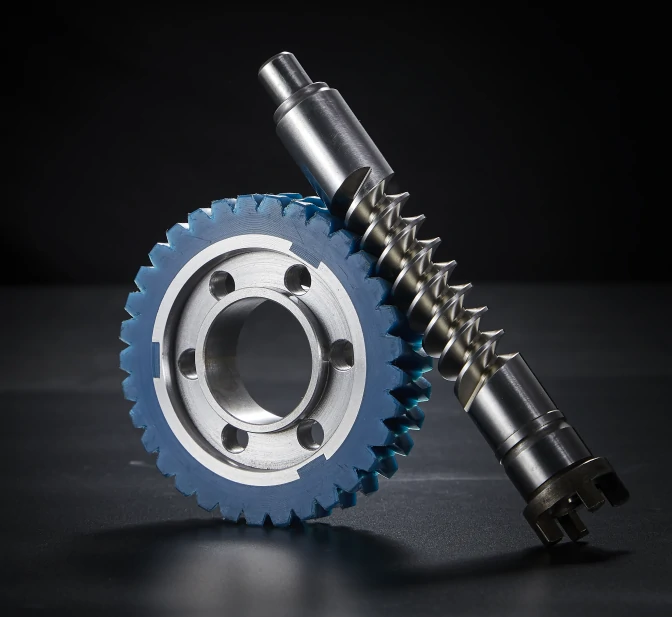Custom Worm Gear Manufacturing for Automotive Applications: How OEMs Solve Quality and Delivery Delays in China
In today’s competitive automotive supply chain, custom worm gear manufacturing: how OEMs solve quality and delivery delays in China plays a critical role in ensuring reliability, reducing noise, and maintaining consistent torque performance. For OEMs, Tier-1 suppliers, and exporters, choosing the right worm gear manufacturer from China or factory direct worm gear supplier can determine the success of an entire vehicle platform.
Pain Points in Precision Automotive Worm Gear Manufacturing: How OEMs Solve Quality and Delivery Delays in China
Dimensional Variability in Custom Worm Gear Fabrication
Many automotive OEMs experience assembly failures due to pitch deviation (>0.02 mm) and misaligned threads. This is a common issue in high-precision worm gear manufacturing when suppliers lack closed-loop dimensional feedback systems. Understanding custom worm gear manufacturing: how OEMs solve quality and delivery delays in China helps highlight the importance of precise inspection and automated feedback.
Surface Roughness and Lubrication Issues
In heavy-duty worm gear manufacturing for automotive machinery, pitting corrosion and rough surfaces (Ra > 0.8 µm) often occur after endurance tests. The root cause lies in inconsistent heat treatment and grinding processes, particularly in outsourced worm gear fabrication and assembly. Implementing best practices demonstrates how OEMs solve quality and delivery delays in China by adopting standardized processes.
Fragmented Supply Chain
Automotive exporters relying on multiple subcontractors often face traceability gaps, inconsistent hardness values, and delayed PPAP approvals — especially among outsourced custom worm gear manufacturers for automotive suppliers. Streamlined workflows illustrate custom worm gear manufacturing: how OEMs solve quality and delivery delays in China in practical terms.
Technical & Managerial Root Causes of Delays
Technical Factors in Precision Worm Gear Manufacturing
- Material inconsistency— Non-compliance with ASTM A29 or GB/T 3077 causes unstable hardness (HRC 25–40).
- Heat-treatment drift— Improper carburizing or nitriding results in microcracks and deformation.
- Tooth-profile inaccuracies— Poor control of lead angle and helix geometry leads to backlash under load.
- Lack of automation— Manual inspection cannot meet precision standards of automated worm gear manufacturing.
Managerial Factors
- Missing APQP/FMEA documentationfor OEM worm gear manufacturing and assembly.
- Weak supplier auditing and communication delays between design and production teams.
- Incomplete process traceability — no digital lot tracking in end-to-end automotive worm gear manufacturing solutions.
By addressing these root causes, OEMs demonstrate how OEMs solve quality and delivery delays in China through structured processes and supplier management.
Industry Impact: Cost, Delivery, and Brand Chain Reaction
| Factor | Issue | Impact |
| Cost | Rework due to dimension drift | +15 % / batch |
| Lead time | Multiple subcontractors | +3 weeks |
| Quality | Surface pitting & backlash | Warranty claims ↑ 30 % |
| Brand | Audit failure | Lost Tier-1 status |
A German EV supplier partnered with a trusted China worm gear manufacturer with 10+ years export experience, proving custom worm gear manufacturing: how OEMs solve quality and delivery delays in China, and reduced defect rates by 45 % within six months.
Solution Framework: Short-Term and Long-Term Optimization
Short-Term Corrective Measures
- Enforce ISO 1328gear-accuracy inspection and ASTM D5183 torque testing.
- Choose a factory direct worm gear supplier in Chinawith in-house heat treatment and grinding.
- Implement quality-controlled custom worm gear productionfor all vehicle systems.
Long-Term Process Optimization
- Establish end-to-end automotive worm gear manufacturing solutions, integrating forging, machining, and assembly.
- Apply automated custom worm gear production for car componentswith SPC data tracking.
- Conduct joint CAD/DFMEA reviews to refine tooth geometry and lubrication design.
- Adopt AI-based surface inspection (Ra ≤ 0.6 µm)for defect prevention.
These practices demonstrate practical examples of how OEMs solve quality and delivery delays in China while maintaining compliance with ISO and IATF standards.
Case Study & Comparative Analysis
Client: European EV steering-system manufacturer
Old Supplier: Multiple subcontractors (India & China)
New Partner: China OEM worm gear manufacturer (single facility)
| Metric | Before | After (Welleshaft-Optimized) |
| Dimensional rejection rate | 8 % | 1.5 % |
| Torque variation | ±12 % | ±3 % |
| Lead time | 6 weeks | 3.5 weeks |
| Warranty returns | 4 % | < 1 % |
| Annual cost savings | – | ≈ US $58,000 |
The switch to automated worm gear manufacturing and centralized QA exemplifies custom worm gear manufacturing: how OEMs solve quality and delivery delays in China in practice.
Comparative Insight: Traditional vs. Automated Worm Gear Manufacturing
| Feature | Traditional Production | Automated / Integrated Production |
| Inspection | Manual gauges | Inline CMM & vision systems |
| Data Recording | Paper logs | Digital SPC dashboard |
| Error Rate | 5 – 8 % | < 2 % |
| Delivery Control | Uncoordinated vendors | Unified MES scheduling |
| Compliance | Partial ISO coverage | Full ISO 9001 + IATF 16949 |
This comparison shows how OEMs solve quality and delivery delays in China through integrated, automated manufacturing processes.
Frequently Asked Questions
(1)What materials are used in automotive worm gear manufacturing?
Alloy steels (20CrMnTi, 42CrMo4), phosphor bronze, and stainless steels (AISI 304/316). Selection depends on torque load, wear resistance, and temperature.
(2)How do OEMs ensure high-quality custom worm gears for vehicles?
(3) How long does custom automotive worm gear manufacturing take?
Medium-volume OEM orders typically take 3–6 weeks. Automated production can shorten lead times by up to 30 %.
Written by Welleshaft’s Mechanical Quality Engineering Division, with over 12 years of experience in OEM worm gear manufacturing and precision gear inspection (CMM, ISO 1328). Our engineers specialize in custom worm gear manufacturing: how OEMs solve quality and delivery delays in China, heat-treatment control, and process validation for automotive drive systems across the USA, Germany, India, and Brazil.

